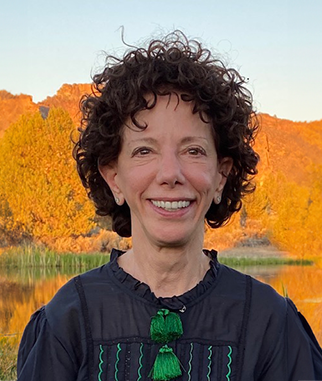Interview with Laurie Cohen

Laurie P. Cohen has written some of the biggest white-collar crime stories in modern times, breaking major information on Michael Milken, Tyco, Martha Stewart, and drug testing labs. Some of her pieces in The Wall Street Journal ran 6,000 words, every one of them riveting. She started off as a beat reporter at The Journal, covering Oil & Gas, Airlines, and Real Estate, before moving to New York to make Law her specialty, at a time when financial malfeasance was particularly acute, and papers could fund long, deep stories that readers took the time to consume. She left about 17 years ago at the top of her game to apply the same skills at investment firms.
Laurie Cohen: When Rupert Murdoch bought The Wall Street Journal in 2007, it seemed pretty clear to me that there wouldn’t be the kind of room in the paper for the kind of long investigative work I loved doing. And to get to the point, I really did need to make more money. I don’t come from a rich family. My dad was bankrupt, I was on my own as a single mom, I had a kid that I just put in private school and couldn’t afford it.
I knew I didn’t want to be a flack and so I started calling all these lawyer sources, asking “What else can I do?” or, “I can use these reporting skills that I have -what else is out there for me?” Someone referred me to a long-only fund in Greenwich, Connecticut.
Quentin Hardy: Lucky break!
LC: They had actually interviewed six other people, all men, before me. Some were former Journal reporters. They hired me, and I worked there for a year and a half before the partners had a falling out. I ended up at a much larger fund called Viking Global Investors. I worked there for almost eight years and then moved to D1 Capital partners.
QH: Bummer to bust up a long fund in 2009, when the market was at such a low.
LC: No, he reopened with a slight rename, different partners. He’s since been charged by the SEC.
QH: One does meet all types in your new line of work. So what was the core skill you had that all these investment funds wanted? What was your bench strength?
LC: I covered all of the white collar fraud cases from Drexel on. I was the Law reporter. I’m great at sourcing and I’m great at reporting. I can’t read a balance sheet for shit – I still can’t. I don’t love writing, so this played really well to my reporting strength.
You see, they didn’t need someone who could do Finance. That is what they do. They’re not as strong on qualitative reporting: What’s the management like? What’s it like inside the company? Is there a moat around it, or are they going to have a lot of competition? They can’t report and it’s a skill.
QH: It sounds like this job is almost like filling out the company as a character, figuring out what the management team is like as people, how they see their futures and what good or bad histories they have.
LC: It’s different from reporting.There are more restrictions. If you’re looking at IBM, you can’t just pick up the phone and talk to people at the company because that risks disclosing material nonpublic information. You have to talk to former employees. If you then want to talk to Microsoft or something you have to be careful because it’s a public company too, and I can’t talk to anybody who’s currently there. They have to be gone for more than six months. I don’t want to restrict us from being able to trade in those public company stocks.
QH: So it’s a tougher problem.
LC: In some ways a little harder but on the other hand I think it’s easier in some ways. People are afraid of being quoted and I promise people I’m not going to print anything.
It is interesting, though. The storytelling angles we bring to things are quite valuable for these investment firms while they’re trying to decide what to do.
QH: What else has changed?
LC: More than anything, LinkedIn. And expert networks.
Originally I’d just find people and get them to talk with me. Now there are expert networks, which give you access to high-level people for a high fee. And there’s LinkedIn, where almost everyone can be found. And lots of people there expect to be paid for talking to you. When they’re talking to everyone in creation you’re not getting anything that’s really differentiated. It’s still a good gig, but the job is a lot harder now.
QH: Socially, how big a change was it moving from a newsroom to a financial firm?
LC: Night and day. All my best friends are still for my journalism days. I have friends from Viking Global Investors, which was a fund where I worked until 2018.
This is kind of a painful part, since I miss the camaraderie in journalism. It must have been the same for you.
QH: Nice people, and I made friends, but often the culture has a different way of seeing things. Of telling stories, carrying on. Journalists work alone, but a newsroom is very collegial, very social. Maybe this is all just about the way you learn to be at your first job, but there is an adjustment when you go to a new industry. And of course, the bigger the company the more likely there is to be a push toward consensus, because you can’t keep fighting all day long.
LC: Not so much of an issue in the financial world. There’s still lots of conflict.
One thing that has been difficult for me, and I should find a nice way to say this. There’s a lot of confirmation bias in the industry. These are wealthy people under a lot of stress, and they do a lot more talking than they do listening. They never learned to ask short questions and wait for long answers. . With all the expert networks, they’re in touch with people who talk to so many other people that they learn to just kind of answer the questions before they get asked. I have a real issue with that.
With some people I can say “that’s bullshit” without them getting upset, and we’re really respectful with each other about it. They’re grown-ups who understand healthy conflict. But for the most part, there are these kids who are trying to sort of make a name for themselves, and they’ll stop using me if I see if I start to disagree a lot. That’s kind of what I’ve been experiencing lately. It didn’t used to happen as much as it’s happening right now. I don’t know if that’s a function of me being older and them being scared or whatever, but it is what it is.
QH: Will the expert networks destroy the kind of work you do?
LC: One thing I find fascinating is that the expert networks sign up all the hedge funds, all the private equity firms. But the networks are all C-suite people or upper level managers. That’s one reason why the “experts” are telling the financial firms what they want to hear, they’re all kind of in the same world. The networks never really go to the middle or the bottom of an organization because they can’t charge enough to make money for these people. To me, those are the best sources. It’s very hard to get people that I work with to understand that. You don’t need to talk to the former CFO. You may want to just talk to the truck driver.
That’s where my greatest value add is now, even if it didn’t start that way. Now I find better, more valuable, people than the people in the expert network, a lot of the time.
Note: Since this interview, Laurie has left the financial world. She’s interested in turning her reporting to the world of incarcerated people.


